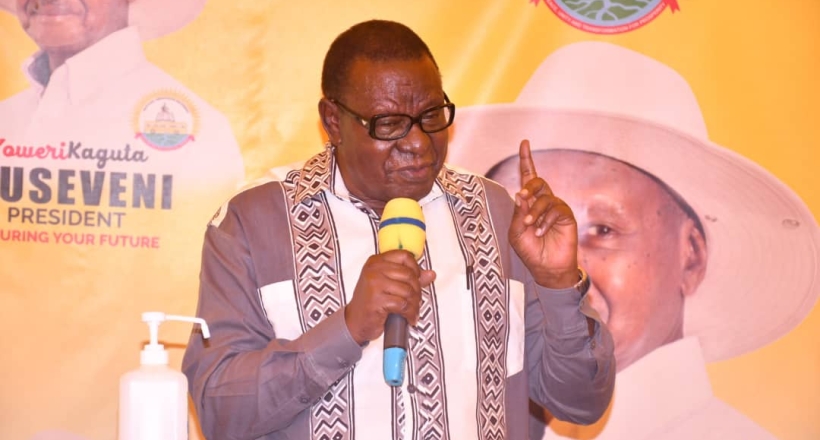
STATE HOUSE .Former Security Minister under the Obote II government Chris Rwakasisi has revealed that he prayed for President Museveni to die while in incarceration in Luzira Maximum Prison due to the suffering he going through at the time.
Speaking during the National Prayer Breakfast at State House on Wednesday , Mr Rwakasisi recounted his political journey during and after the 1980 elections when former President Milton Obote had promised to appoint him Prime Minister ,but later sidelined him. He described how pride and power drew him away from God until his downfall and imprisonment.
He testified that while in prison, he initially prayed for Museveni’s death but later found peace after the Holy Spirit reminded him that “one who does not forgive will never be forgiven.”
He said, “The more I prayed for Museveni to die and his family and government, the more he flourished. But the Holy Spirit helped me, and I changed my prayer from hate to love. I started praying for him and his family, and from there things started to ease.”
Rwakasisi said he later received divine assurance that he would be released: “A gentleman came near me and said, ‘Chris, fear not. No one is going to kill you. In a few days, you will leave this place,’ and in a few days, I left.
President Museveni later ordered his unconditional release with immediate effect in 2009. When they met, Rwakasisi said, “We embraced and sat down and talked like old lost brothers. He asked me how the case was, and that was reconciliation.”
The President later appointed Rwakasisi as a Special Presidential Advisor, a gesture the latter described as evidence of true forgiveness.
He thanked President Museveni for not signing any death sentence since 1995 and conveyed the inmates’ plea for clemency, saying, “The inmates have asked me to request you to pardon them.”
This year’s 27th National Prayer Breakfast was held under the theme: “The Power of Forgiveness and Reconciliation”
In his concluding remarks, Rwakasisi encouraged those still in opposition to seek peace.
“You who want to fight Museveni, fight him. Me, I will not fight him,” he said, emphasizing that forgiveness and reconciliation are not weaknesses but expressions of divine strength
On his part ,Museveni thanked Rwakasisi for his powerful testimony which emphasized the need for forgiveness, tolerance, and reconciliation in both personal and public life.
He reflected on Uganda’s cultural diversity and urged citizens to find ways of blending traditional values with Christianity and other faiths.
Recalling his experiences during the bush war, the President narrated that after one of their victories, Gen. Kahinda Otafiire suggested hiding some guns in case the UPC government turned against them, but he rejected the idea, calling it treacherous. He also recalled refusing to kill Oyite Ojok, one of Obote’s top army commanders.
“When I got the case about Chris, I went somewhere in my office and prayed about it, whether to sign the document to kill him,” the President said. “And the voice came, ‘No, do not sign it.’ Accountability is not always punitive, but the other side can come and negotiate and okuhonga, which means to pay for the mistakes.”
He explained that although some people thought he was naïve, his approach to justice was guided by faith and principle.
“People thought I was naïve; that’s why you hear I started with twenty-seven guns,” he said. “The NRA fight was an open fight — not killing people, not poisoning people. The witness of Rwakasisi is very good. It is good that he has stayed alive, and I have stayed alive so that we can tell you these stories.”
Rwankasisi, endured 24 years on death row in Luzira Prison, accused of crimes he insists he never committed.
His journey from despair to redemption, which saw him later praise the man he once hated, is a remarkable tale of resilience, defiance, and faith.
Arrested during Tito Okello Lutwa’s 1985 coup, Rwankasisi faced fresh charges after Yoweri Museveni’s National Resistance Army (NRA) overthrew Lutwa in 1986.
In 1988, he was sentenced to death on six counts of kidnap. What followed was over two decades of waiting for the gallows until his unexpected pardon in January 2009.